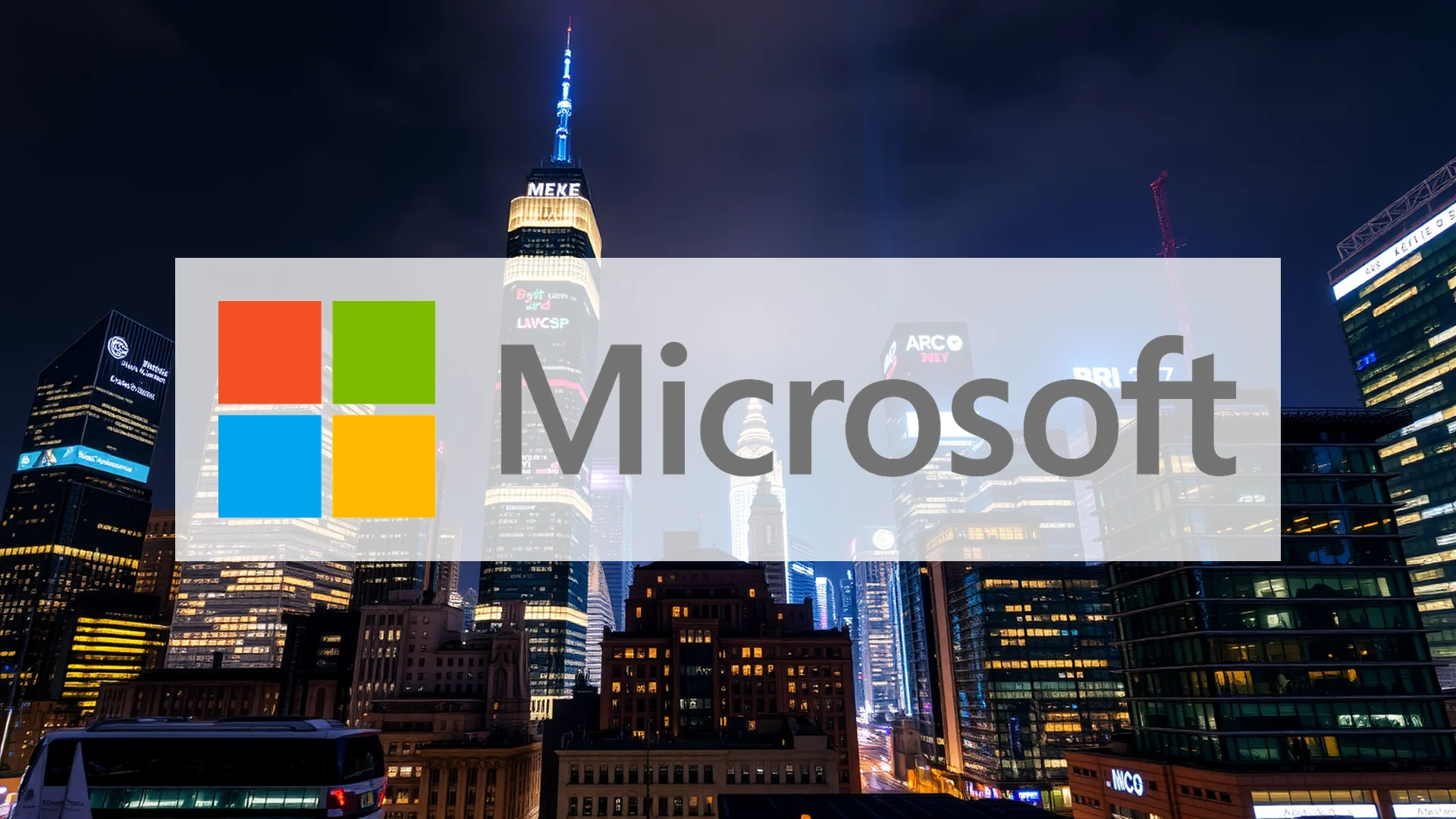This weekend finds Microsoft at the center of a dramatic financial narrative, caught between a significant technological advancement and a troubling admission about its flagship operating system. The contrasting news flow created investor uncertainty, leaving market participants to weigh the company’s immense artificial intelligence potential against emerging questions about its core software quality.
A Landmark AI Partnership Demonstrates Monetization Strength
Counterbalancing the negative headlines, Microsoft provided a powerful demonstration of its entrenched position in the artificial intelligence sector. The newly announced “Frontier Firm AI Initiative,” a collaboration with industry behemoth Nestlé and Harvard University, underscores the deep penetration of Microsoft’s AI tools within global enterprise.
The scale of adoption is particularly telling: more than 100,000 Nestlé employees now utilize Copilot Chat for their daily operational tasks. This move transcends a typical corporate partnership; it serves as tangible validation that Microsoft’s strategy for monetizing its AI offerings is gaining massive traction, with major corporations demonstrating a clear willingness to invest substantially in this technology.
A Rare Admission of Systemic Software Flaws
Simultaneously, the tech giant issued a rare confession that has unsettled its investor base. Reports confirm that critical functions within Windows 11 have been malfunctioning since July 2025. Industry specialists are attributing these issues to “systemic deficiencies” within the company’s update protocol, reportedly caused by overly rapid release cycles that lack sufficient testing.
Should investors sell immediately? Or is it worth buying Microsoft?
For the business clients who depend on unwavering platform stability, this development represents a significant red flag. Market analysts are concerned that these quality control failures could erode the “trust premium” that Microsoft has historically enjoyed in the B2B marketplace. The stock felt this pressure directly during Friday’s session, closing down 1.31% at €409.55.
Confident Insider Trading Amidst the Turbulence
Despite the operational concerns surrounding Windows, there are compelling signals that the equity’s valuation remains appealing. Political insiders appear undeterred by the software glitches. Senator Markwayne Mullin recently acquired Microsoft shares valued at up to $500,000—a transaction often interpreted as a strong indicator that well-informed circles perceive substantial long-term potential.
This optimistic perspective is further supported by the company’s robust fundamental performance. Quarterly results released in late October dramatically surpassed market forecasts, showcasing a revenue surge exceeding 18% and earnings per share that comfortably beat consensus estimates. This formidable financial foundation is likely sufficient to help the company navigate the current storm over Windows reliability.
Market Outlook: A Test of Crisis Management
All eyes are now on how Microsoft management addresses this situation in the coming week. The market is demanding a clear and concrete timeline for resolving the Windows defects to reassure its corporate customer base. Should the company succeed in providing this, investor focus is expected to swiftly return to the company’s thriving cloud and AI divisions, which analysts continue to believe hold significant upside potential for the stock.
Ad
Microsoft Stock: Buy or Sell?! New Microsoft Analysis from February 7 delivers the answer:
The latest Microsoft figures speak for themselves: Urgent action needed for Microsoft investors. Is it worth buying or should you sell? Find out what to do now in the current free analysis from February 7.
Microsoft: Buy or sell? Read more here...











